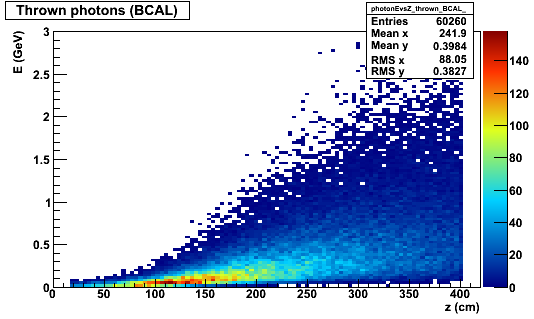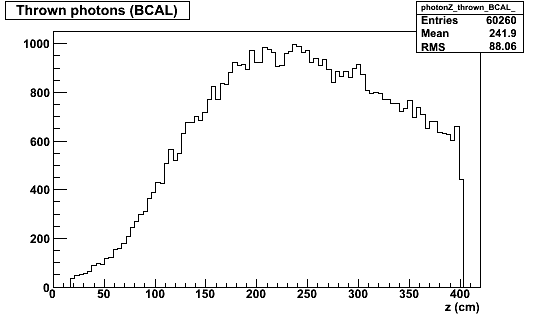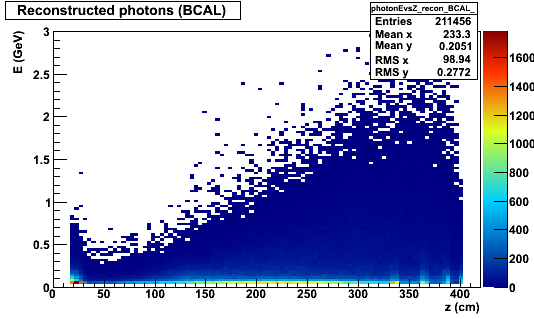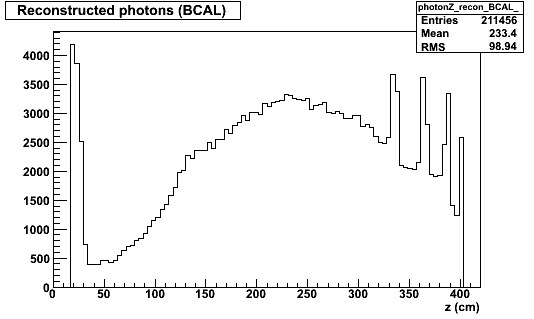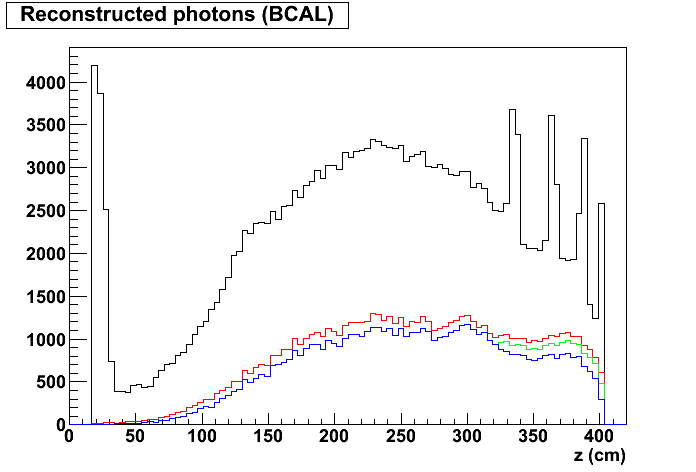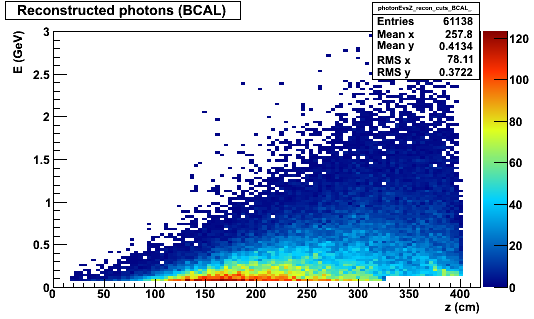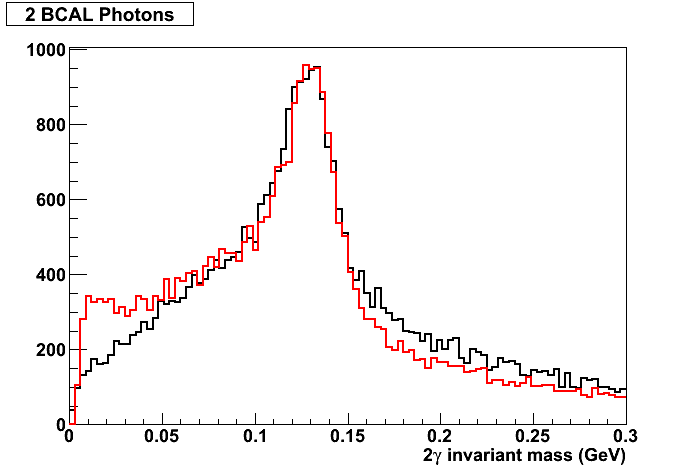Difference between revisions of "Photon Reconstruction in b1pi events 02/10/2012"
From GlueXWiki
(→Two gamma invariant Mass) |
|||
| Line 33: | Line 33: | ||
Number of "photons" decreases from 44,000 to 13,000. | Number of "photons" decreases from 44,000 to 13,000. | ||
| + | |||
| + | ==FCAL== | ||
| + | ===Thrown photons=== | ||
==Two gamma invariant Mass== | ==Two gamma invariant Mass== | ||
Revision as of 10:12, 17 February 2012
Contents
BCAL
Thrown photons
Look at the distribution of decay photons from the pi0.
For comparison with reconstructed data, useful to look at z rather than theta. This is the z that the photon would reach the inner radius of the BCAL, given its momentum and vertex.
Reconstructed photons
Spectrum of reconstructed "photons": exclude clusters that can be matched to a charged track.
Where does each of these peaks come from?
- Peaks at upstream and downstream ends of detector from noise that cause garbage timing info?
- Other three sharp peaks? Look like FDC structure, but spacing is not right?
Cuts
- A timing cut fabs(t_shower-t_flight) < 1 ns can be applied to remove many of the extra "photons". (Red curve below)
- I don't think low energy showers are well understood at the moment, so remove clusters with E<60 MeV. (Green)
- Also, cut out a problem area at forward angles and lower energies (E<120 MeV && z>325 cm) (Blue)
More work needed to optimize cuts.
With all cuts:
Number of "photons" decreases from 44,000 to 13,000.
FCAL
Thrown photons
Two gamma invariant Mass
Look at pairs of 2 BCAL photons, subject to cuts described above. Using truth vertex information.
Later should add FCAL photons.
Compare KLOE algorithm to GlueX algorithm.
GlueX is in red, KLOE in black.
